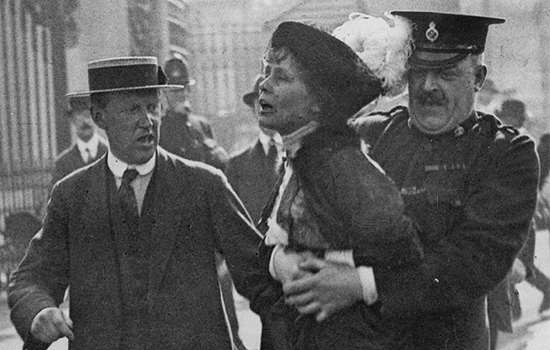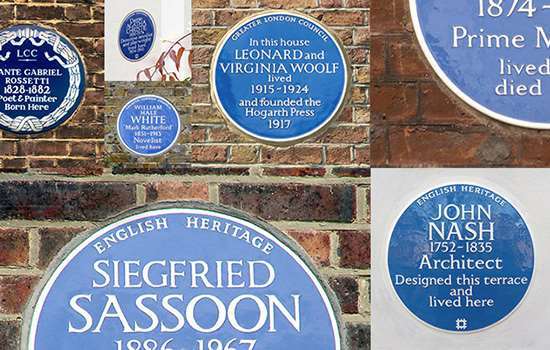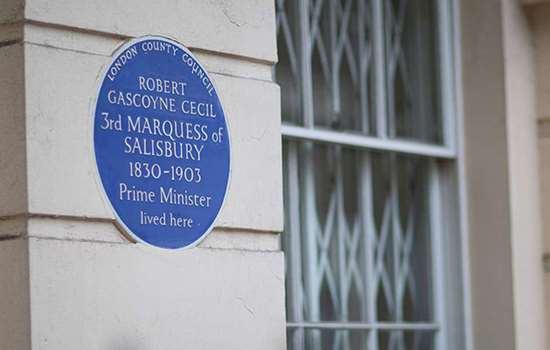BUTLER, Josephine (1828-1906)
Plaque erected in 2001 by English Heritage at 8 North View, Wimbledon, London, SW19 4UJ, London Borough of Merton
All images © English Heritage
Profession
Social Reformer
Category
Philanthropy and Reform
Inscription
JOSEPHINE BUTLER 1828-1906 Champion of Women's Rights lived here 1890-1893
Material
Ceramic
Josephine Butler was a social reformer and champion of women’s rights. She is particularly noted for her work with prostitutes and was the most prominent figure in the successful campaign to repeal the Contagious Diseases Act in 1886. Number 8 North View, Wimbledon, was her home in her later years.
FAMILY
Born in Northumberland into a family of wealthy political reformers – the Whig Prime Minister Earl Grey was a cousin of her father – Josephine Grey was mostly educated at home, where she was schooled in social reform and in a form of Christianity that emphasised practical action.
In 1852 she married the academic and Anglican clergyman Dr George Butler, who shared her hatred of social injustice. George’s career took them first to Oxford, where Josephine achieved a level of education unusual for a woman of her time, and was provoked by the arrogance on show in the all-male academic environment.
WOMEN’S RIGHTS
The Butlers moved to Liverpool in 1864 and it was there – partly fired by grief following the accidental death of their young daughter Eva – that Josephine became increasingly involved in women’s rights. She was particularly passionate about higher education and the plight of prostitutes. In 1867 she became President of the North of England Council for Promoting the Higher Education of Women, and two years later she edited Woman’s Work and Woman’s Culture, which gave further support to this growing movement.
CONTAGIOUS DISEASES ACTS
In 1869 Josephine Butler was appointed Secretary to the Ladies’ National Association for the Repeal of the Contagious Diseases Acts. Introduced in the 1860s to reduce venereal disease and regulate prostitution, these laws required all women believed to be prostitutes in seaports and garrison towns to submit to intrusive medical examinations. Their male clients, however, were not subjected to this.
Butler and her fellow campaigners recognised the examinations as unjust and humiliating and she conducted a long and ardent campaign for their repeal, confronting Victorian sexual taboos head-on. The Acts were finally repealed in Britain in 1886.
ACTIVISM ABROAD
Butler also turned her attention abroad, visiting France, Italy and Switzerland, and spoke out against the growing problem of under-age prostitution and licensed houses. This led to the founding in London of a committee for the suppression of ‘white slave traffic’.
In later years Josephine lobbied for causes including Irish Home Rule, women’s suffrage and the rooting out of police corruption. She also led a campaign to end the regulation of prostitution in India.
LONDON
Dealt a blow by her husband’s death early in 1890, Butler moved with her son to 8 North View, a tall end-of-terrace house dating from the late 1880s. She relished her new home’s situation near Wimbledon Common, writing that:
There is perfect freedom to walk out at all times, without ‘dressing up’, and in a few minutes one can find oneself in a retreat surrounded by purple heather and bracken … where the solitude and silence towards evening makes it difficult to realise that one is so near London.
After her son’s marriage in 1893, she moved to 29 (now 93) Tooting Bec Road in Wandsworth, and then travelled abroad and lived for three years in Cheltenham before settling at her final home in Northumberland in 1903.


